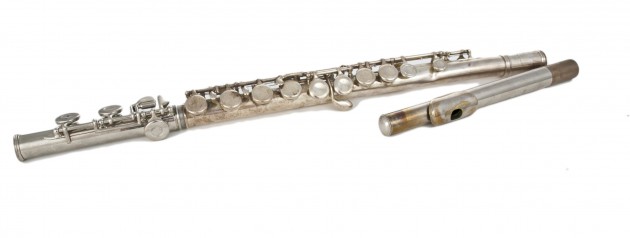Sustainable Instruments on a Budget
Some prices can be too good to be true.
This isn’t about selling you the most expensive instrument — it’s practical advice on choosing an instrument that will support, rather than frustrate, your or your child’s musical journey from the very first note.

When purchasing a musical instrument on a tight budget, it's tempting to opt for the cheapest option available. However, this choice can often lead to frustration and additional costs. Low-quality instruments are typically made from soft metals, have poor design ergonomics, and lack durability, making them difficult to play and prone to frequent repairs. Such instruments often become unplayable within a short period, leading to a cycle of waste and increased spending.
Why Many Budget Instruments Just Don’t Make the Cut
We understand that with the cost of living crisis families are facing tighter budgets than ever, and buying a musical instrument can feel like a big gamble—especially if it’s uncertain whether a child will stick with playing. Our goal is to make high-quality instruments accessible without compromise. That’s why, when we receive samples, our expert technicians test each one thoroughly.
Too often, even the cheapest options reveal flaws that make them difficult to play, prone to breaking, and ultimately destined for landfill—so choosing a well-made instrument is better for both the player and the planet.
Why cheap online instruments often fail beginners and harm the planet:
- Low-Grade Metal
The main reason these instruments can be made so cheaply in the first place is the use of low-grade metal, often nickel or brass. This metal is soft, so the keywork bends easily—not just from knocks or drops, but even during normal playing. While a repairer can straighten it, it will inevitably bend again and again. Beyond durability, the quality of the metal also has a significant impact on tone, limiting the instrument’s musical potential.
- Bad Design and Ergonomics
Another reason these instruments cost less than leading brands is minimal investment in design. Unlike well-established makers, who carefully refine key placement over decades, many budget instruments have keys positioned awkwardly. This can make the flute difficult to hold and play, potentially leading to poor posture, repetitive strain injuries, tendonitis, or even back problems. Brands like Yamaha and Jupiter, by contrast, have spent decades perfecting ergonomics to support comfortable, injury-free playing.
Poor Build Quality
As the saying goes, you get what you pay for. Budget instruments often show clear signs of rushed or careless manufacturing: uneven lacquer or silver plating, soldered joints coming apart, pads failing to seal, corks and felts falling off, or poorly fitting joints. Any one of these issues can make the instrument difficult—or even impossible—to play, turning what should be a joyful learning experience into a source of frustration.
Poor Tuning
If our technicians—who are also highly trained musicians—can’t get an instrument in tune, a beginner doesn’t stand a chance. The result is an instrument that sounds off-pitch, making playing frustrating and discouraging for both the student and their parents. A poorly tuned flute can quickly undermine confidence and enjoyment, which is why quality tuning matters from the very first note.
-
The Environmental Impact of Cheap Instruments
Beyond personal inconvenience, inexpensive musical instruments contribute significantly to environmental degradation. These instruments are often constructed with materials that are not built to last. When they inevitably break or become unplayable, they end up in landfill. They aren't designed to be serviced, and spare parts aren't available. The production of these instruments also consumes resources and energy, further exacerbating their environmental footprint.
The Value of Quality Instruments
Investing in a well-made instrument, such as those from reputable brands like Yamaha or Jupiter, offers several advantages:
-
Longevity: Quality instruments can last for decades, often 40–50 years, with proper care.
-
Repairability: These instruments are designed to be serviced, extending their lifespan and reducing waste. Spare parts are available.
-
Resale Value: Good-quality instruments retain their value over time, making them a more economical choice in the long run.
-
Environmental Benefits: By choosing durable instruments, you contribute to a reduction in waste and resource consumption.
How to Avoid Getting a Poor-Quality Instrument
Buying from a specialist shop like ours gives you several advantages: the chance to try multiple instruments, expert guidance to find the best fit for you, and the reassurance of reliable after-sales support through our Perfect Performance Plan. We often see customers who’ve purchased cheaply online or at auction only to be disappointed—so coming to a trusted specialist can save time, money, and frustration, while ensuring your instrument is built to last.
- We carefully review all makes and models on the market. If an established music shop—including ours—doesn’t list it, ask yourself why.
- If budget is tight, buy a good second-hand instrument instead of a cheap new one - no-one was ever disappointed with a Yamaha!
- We offer a small range of carefully selected, lower-priced instruments under our own brand. These are designed to support beginners through the early grades. While they cost a little more than the cheapest options on the market, you can be assured that each has been thoroughly tested to ensure reliability and durability. We carry spares for these.
- Always buy from someone you trust. If in doubt, seek the advice of a skilled player or teacher to make sure your purchase will support long-term learning and enjoyment.